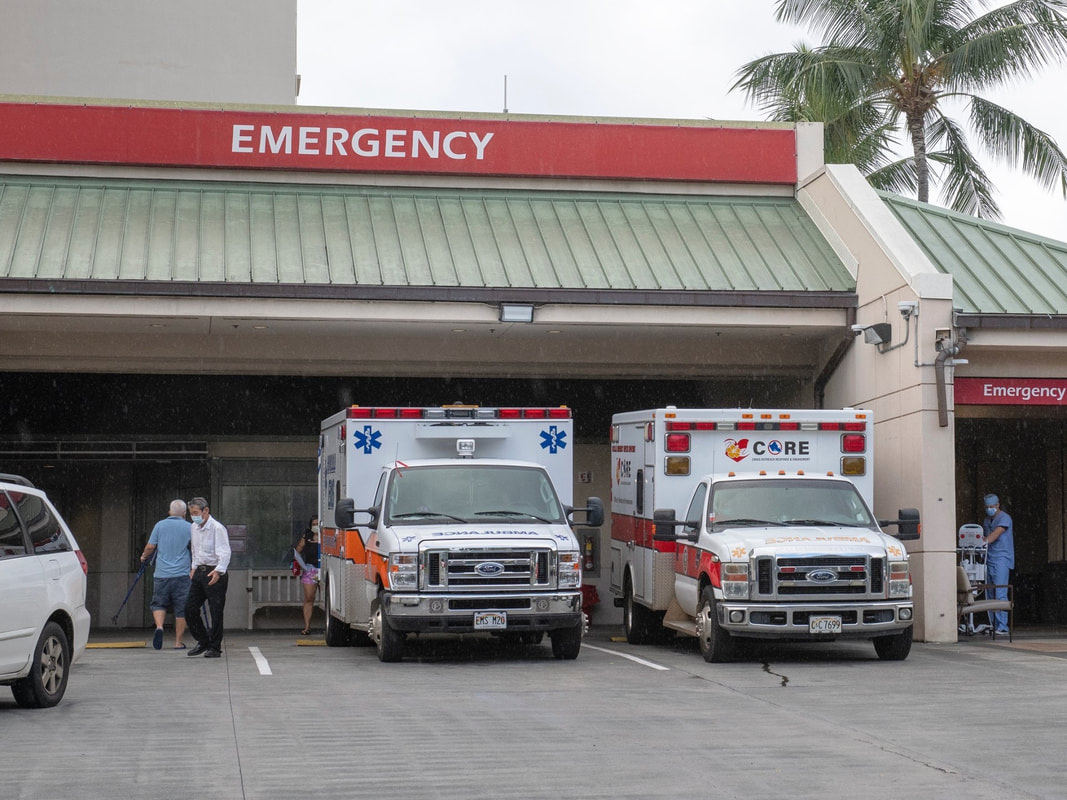|
by Keli'i Akina, Ph.D, President of Grasroot Institute of Hawaii Even before the COVID-19 pandemic, we were warned that lack of healthcare capacity in our state was a deepening problem. The last two years have revealed that things are even worse than we thought. As I discussed in my Wall Street Journal commentary published last weekend — “Hawaii Is No Paradise if You Need Medical Care” — Hawaii’s healthcare crisis includes a growing doctor shortage, lack of specialty care in rural areas, high emergency room wait times and the fact that we have among the fewest hospital beds per capita in the nation. These are problems that have been highlighted by the pandemic, but they did not pop up overnight. They are the result of decades of regulations and policy decisions, including high taxes, extensive regulations and Hawaii’s notoriously high cost of living. According to Lisa Rantz, my guest on this week’s episode of “Hawaii Together” on ThinkTech Hawaii, many people are still waking up to the reality of the state’s healthcare shortages. Rantz is the executive director of the Hilo Medical Center Foundation, which has been conducting a comprehensive study of community health needs. She noted that while the state has done “a great job” at ensuring that people have health insurance, “having health insurance does not equate to having access to healthcare.” If anything, Rantz said, the numbers understate the depth of the healthcare crisis in Hawaii. While we usually hear that the state is short about 820 doctors, Rantz says that the real shortage, at this point, is over 1,000 physicians. And it’s not just more doctors that we need. The nursing shortage is also growing. Hawaii County has the third-largest nursing shortage in the country, followed by Maui at No. 5 and Kauai at No. 13. The shortage of specialists has long been a problem on neighbor islands, where people have to fly to Oahu or the mainland for care. But now, even Oahu is starting to notice the effects. “I think as we’ve seen more neighbor island folks getting care on Oahu, as our shortages increase across the neighbor islands, we’re starting to feel that on Oahu,” said Rantz. “When you call your doctor and they’re like, ‘Oh, you can’t get in for two weeks,’ or ‘We can’t see you for three weeks because we have appointments from neighbor island community members,’ then all of a sudden it hits home. I think as the shortage increases, we’re starting to see more of the impact on Oahu.” The shortages restrict possible solutions to the problem. Rantz said that when speaking to legislators about the lack of doctors, they’ll suggest using nurse practitioners or physician assistants to provide primary care. But that won’t work when the shortage exists across all medical positions. Why does this shortage exist? Rantz says it’s the result of a “perfect storm” of factors, many of which will be familiar to anyone who has followed our “Why We Left Hawaii” series. The state’s high cost of living — including housing costs — is especially discouraging to medical students who are already struggling with heavy debt. Combine this with the high taxes and low reimbursement rates for doctors and it becomes very difficult to recruit young medical professionals to Hawaii. In other words, the same problems that contribute to our state’s overall population loss are exacerbating our healthcare woes. Clearly, the first thing that lawmakers ought to do is embrace policies that will reduce the overall cost of living, like lowering taxes and making more land available for residential development. But there are other reforms that could directly address our state’s healthcare capacity issues. We could start by liberalizing Hawaii’s so-called certificate-of-need laws, which are among the strictest in the country. A study from the Mercatus Center found that states with certificate-of-need programs have 30% fewer hospitals per 100,000 residents and 13% fewer rural ambulatory surgical centers per 100,000 residents. Rantz also singled out Hawaii’s low Medicare rates as a problem that could benefit from the attention of our congressional delegation. At the state level, she said, the general excise tax is a significant problem for private-practice physicians. Though most people perceive the GET as a small charge, it is imposed at every transaction level and ultimately totals two to three times more than its face value of 4.5%. Combined with the state’s low Medicare reimbursement rate, that leaves private-practice doctors in Hawaii scraping by with very low margins. Rantz said that between the high cost of living and the GET, it is very difficult for Hawaii doctors to maintain a viable practice. “We actually just lost three providers here in East Hawaii on Hawaii island that are closing up their doors and moving to the mainland, because they can’t make the numbers work. They just can’t do it,” she said. If policymakers are serious about improving healthcare access in our state, addressing the GET and low Medicare reimbursements are just the beginning. Other avenues to explore include reexamining licensing laws, exploring the potential of public-private partnerships, improving telehealth and, of course, repealing or reforming the state’s CON laws. What we cannot afford to do, however, is stick our heads in the sand and hope the problem will go away. If we want to be prepared for future emergencies, we need bold changes to encourage and facilitate the provision of healthcare. ____________ This commentary was Keli’i Akina’s weekly “President’s Corner” column for Dec. 11, 2021. If you would like to have his columns emailed to you on a regular basis, please call 808-864-1776 or email [email protected]. (https://www.grassrootinstitute.org/2021/12/bold-change-needed-to-fix-hawaii-healthcare/)
0 Comments
Your comment will be posted after it is approved.
Leave a Reply. |
If you wish to further discuss blog posts, please contat our office directly or contact us via Contact page.
Categories
All
|


 RSS Feed
RSS Feed